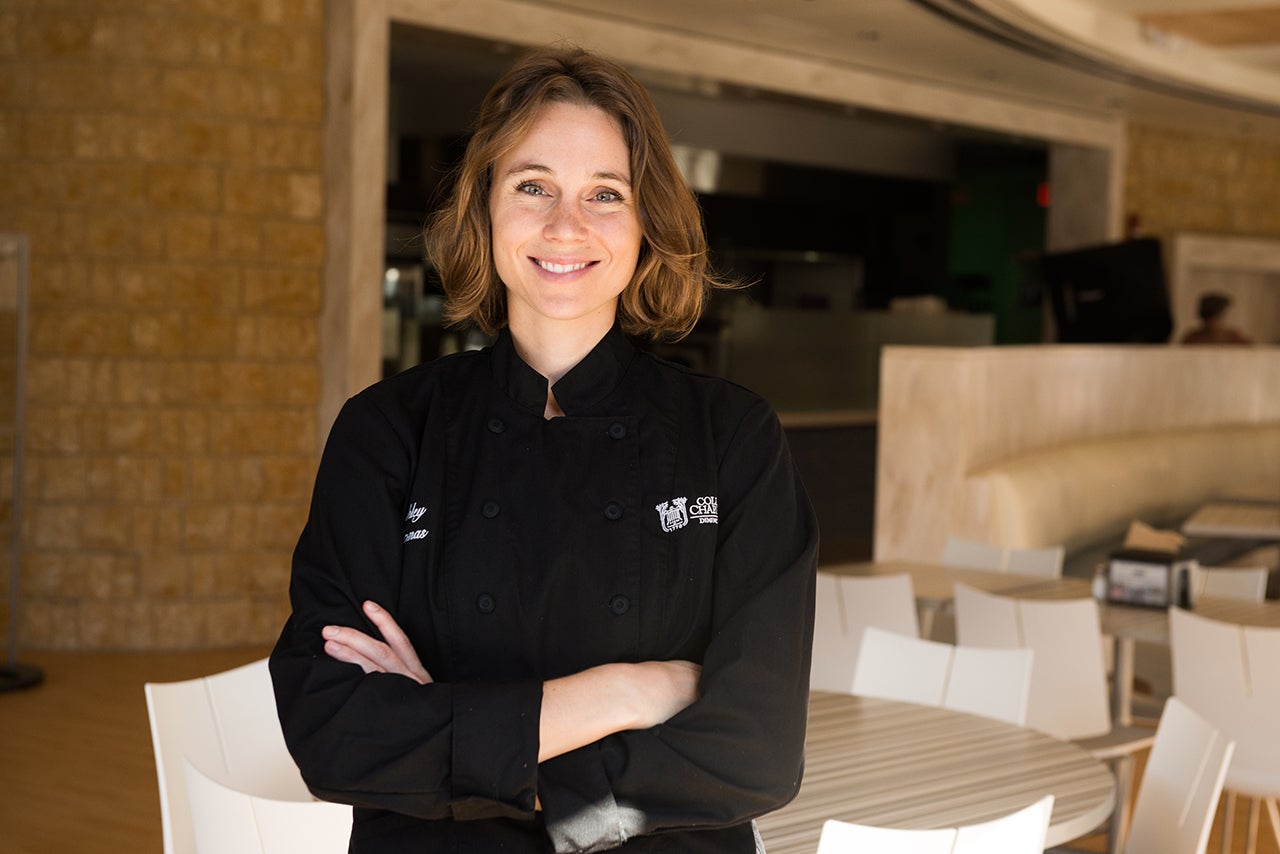 Ashley Galloway Thomas’ life revolves around food. Seriously.
Ashley Galloway Thomas’ life revolves around food. Seriously.
As an Aramark employee working with the College of Charleston’s Dining Services, Thomas is the first registered dietitian to serve the campus community. She provides nutrition counseling for students with food allergies and works with Dining Services to add healthier food choices to the College’s menus. Student Health Services can refer students with conditions such as diabetes or hypertension to her for dietary counseling, and she occasionally works with students with eating disorders, often sent over for consultations by counselors, coaches or athletic trainers.
Thomas – an enthusiastic traveler and lover of hiking, yoga and pottery (she even has her own wheel and kiln at home!) – holds a bachelor’s in dietetics and a master’s in nutrition education and health promotion, both from Florida State University, and brings extensive clinical experience to the position. She has previously worked in hospital settings helping high-risk populations, such as patients with renal disease, work to meet their nutritional needs. More recently, she worked as a research dietitian with the Medical University of South Carolina’s Department of Gastroenterology before moving across Calhoun Street to the College of Charleston.
“I saw this as an opportunity to get back to working on the front line of prevention,” says Thomas, who also serves as the adviser for the CofC Nutrition Club and runs an internship program for public health students.
With Thomas focusing so much on good nutrition, you might assume her repertoire of food consists largely of salad and water. But, as it turns out, this guru of good-for-you food makes room in her life for cookies, pizza and the occasional burger. And her nutrition blog, The Fresh Beet, bears that out with a variety of fun food recipes like mushroom miso ramen and apple pumpkin pancakes alongside tips on how to build a better salad and how to choose the most nutritious peanut butter.
Thomas insists that eating is all about balance – and that there’s a danger in labeling foods “good” and “bad.”
“Once you do that, then you start restricting yourself from things you do enjoy, and eating can become a burden,” she says. “There’s a lot of mind games when it comes to eating, and there shouldn’t be. I think the more we become connected to our food, the easier eating well becomes. Then things just kind of naturally fall into place.”
Just like she has naturally fallen into place at the College of Charleston.





